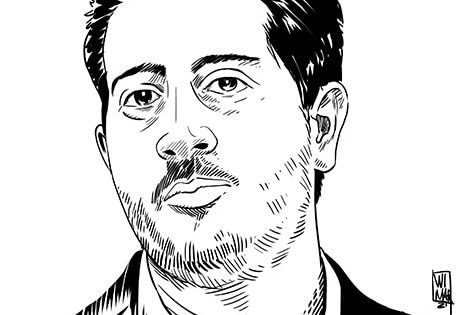(RSF/IFEX) – RSF is campaigning harder than ever for the 21 Cuban journalists who have been imprisoned since an 18 March 2003 crackdown in which 75 dissidents and journalists were arrested. Two years after the crackdown, which has become known as Cuba’s “Black Spring”, RSF is calling for the broadest possible solidarity with these prisoners […]
(RSF/IFEX) – RSF is campaigning harder than ever for the 21 Cuban journalists who have been imprisoned since an 18 March 2003 crackdown in which 75 dissidents and journalists were arrested. Two years after the crackdown, which has become known as Cuba’s “Black Spring”, RSF is calling for the broadest possible solidarity with these prisoners of conscience.
Despite the release of six of these journalists, including Raúl Rivero on 2 December 2004, Cuba’s independent press remains the target of constant censorship and threats by the authorities.
“We continue to condemn the summary trials and excessive sentences, ranging from 14 to 27 years in prison, imposed on journalists whose only crime has been to practice their trade and think differently from the authorities,” RSF said. “We demand their immediate and unconditional release. We also condemn the mistreatment, arbitrary use of solitary confinement and privations, and awful sanitary conditions in Cuba’s prisons.”
The case of Adolfo Fernández Sainz, of the independent news agency Patría, is considered to be one of the most worrying by his fellow political prisoners. Aged 51 and serving a 15-year prison sentence, Fernández Sainz has pulmonary emphysema, kidney cysts, a stomach hiatus hernia, an enlarged prostate, arthritis throughout much of his body, and high blood pressure. He has lost 20 kg since he went into prison and is not receiving appropriate treatment for any of his ailments.
Miguel Galván Gutiérrez, of the Havana Press agency, who is serving a 26-year sentence, has had to sleep on a board since 29 September 2004, when his mattress was taken away without explanation. The dental examination he was to have on 20 October was cancelled because the equipment was not working.
Pablo Pacheco Ávila, aged 33 and a member of the Cooperativa Ávileña de Periodistas Independientes (CAPI), has been unable to have the X-rays he needs on two occasions for the same reason. Pacheco Ávila, who is serving a 20-year prison sentence, suffers from a number of orthopaedic problems, chronic gastritis, migraines and high blood pressure. The meagre food he receives is incompatible with his medication.
Similar prisons conditions, privations and ailments are being endured by Víctor Rolando Arroyo Carmona, Pedro Argüelles Morán, José Luis García Paneque, Julio César Gálvez Rodríguez, Normando Hernández González, Mario Enrique Mayo Hernández, Mijail Barzaga Lugo, Alfredo Felipe Fuentes, Alejandro González Raga, Ivan Hernández Carrillo, José Ubaldo Izquierdo Hernández, Fabio Prieto Llorente, Alfredo Manuel Pulido López, Omar Moisés Ruiz Hernández and Omar Rodríguez Saludes.
Juan Carlos Herrera Acosta, of the Agencia de Prensa Libre Oriental (APLO), spent a year in a windowless cell, has lost 17 kg and has received only three visits since he was imprisoned. Héctor Maseda Gutiérrez, of the Grupo de Trabajo Decoro news agency, said in a letter to his wife, Laura Pollán, that the food and medicine she brings when she visits the prison are confiscated after she leaves. Pollán is the founder of the “Women in White” movement of wives and close relatives of detained dissidents.
Ricardo González Alfonso, editor of the underground magazine “De Cuba” and an RSF correspondent, was sentenced on 4 April 2003 to 20 years in prison. The prosecutor had requested life imprisonment. His wife, Alida Viso, said he is “locked away with his optimism as a companion.” In November 2004, González Alfonso received treatment for his hepatitis. On 13 January 2005, he underwent an operation for gallstones. His morale remains high, according to his family, despite his ailments and a hunger strike undertaken in December 2004.


